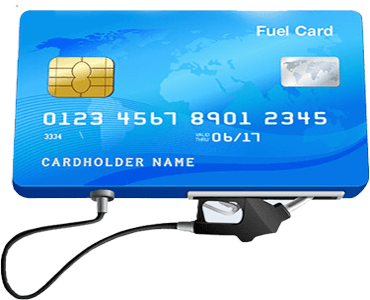
Fuel cards are nothing new. Like other types of loyalty cards, they were invented many years ago by gas station chains and travel agencies to build customer loyalty and simply sell more gasoline. As a counterpart, these companies offered discounts and other advantages to the cardholders. Companies engaged in the transport of goods by road (which inevitably use much more fuel than any average driver) quickly realized that these cards could help them save large amounts of money on fuel. In addition, they could use them as a secure system to track the costs of carriers in their routes. Currently, not only service stations or gas station chains offer fuel cards; so do several specialized companies nationwide. Most of them offer discounts and prepaid options in a wide network of partner gas stations. To get more info, you can visit https://www.icompario.com/en-gb/fuel-cards/bp/.
As we will see below, saving on gasoline is not the only advantage associated with these fuel cards.
What exactly is a fuel card?
A fuel card, also known as a fleet card, is a payment card that works in the same way as a credit card. It is used by commercial vehicle drivers to pay for fuel when refueling at gas stations. Fleet cards can also be used to pay expenses related to the vehicle and its maintenance, depending on the policies of each company.
What companies offer fuel cards?
Normally, they are offered by oil companies such as Shell, Chevron and ExxonMobil, energy companies such as Repsol and other firms specializing in fuel cards and similar services.
What you should keep in mind when buying a fuel card
The fixed price versus the price of the gas station
With some fuel cards, you can pay a fixed price (within the entire national territory) for gasoline or diesel, while others that allow you to refuel at more different points, but at the price set at the gas station. Basically, you should ask yourself if you prefer to pay less and access a more limited number of service stations or pay more to be able to choose from a wide network of gas stations.
Big chains or other options?
The choice depends largely on the type of routes of your fleets. For example, if your fleet mainly carries out urban journeys, it is possible that a supermarket card will give you more advantages than a fuel card of a specific chain for giving you easier access to gas stations. On the contrary, if your fleet makes routes throughout the country or even abroad, a fuel card that allows you to use gas stations in different territories could be a better choice in your case.
Three key advantages of fuel cards
1.A great savings
One of the main advantages of fuel cards is that they often offer discounts on the purchase of fuel to their loyal customers who agree to use certain specific service stations. These types of discounts can vary greatly, but every penny you save when you fill the tank can help you save thousands of dollars in the long run. Today, thanks to the possibility of collecting data in real time, many fuel card providers regularly modify the price of fuel throughout the country. This means that drivers can find the cheapest prices on their journeys near where they are.
2.Better security and control
Fuel cards provide fleet managers with practical and comprehensive information in real time on the expenses incurred by drivers, which helps them when budgeting and setting spending limits. Having the full detail of the expenses incurred with the cards also allows them to avoid possible fraud. In fact, a fuel card is a safe guarantee that these types of activities do not occur when carriers pay for gas or other services while on the road.
3.Flexibility and facilities
Fuel cards offer carriers great flexibility when choosing the gas stations where they are going to refuel, as they can be used, often with interesting discounts, in a large number of establishments throughout the country. As noted earlier, they also allow drivers to access information in real time on the nearest service stations and at better prices. This can help you save a lot of money, since carriers spend less fuel looking for gas stations and do not have to pay the price of the service station, which is higher.















